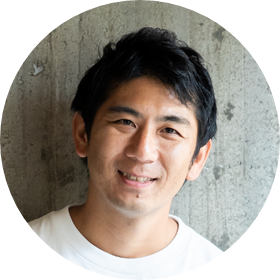“but there is more than one way to make the most of the night!”
Nighttime economy is evening activities that bolster economy, but that might not make it completely clear what it means. Jungo Kanayama of Future Design Shibuya develops projects for promoting nighttime economy and improving ethics in Shibuya, so we asked him about his concept of nighttime economy and why it is focused on in Japan.
Q: What is the concept of nighttime economy?
A: Japan is trying to become more tourism driven by attracting tourists from abroad and through that, increase spending. Tourists spend the most on transportation, and the second most on accommodations. After that comes money spent on food and leisure, but this amount is low. An incredible amount of shopping is done by tourists from other parts of Asia, but once this calms down, the issue will become how we increase spending. Looking at that, we can see that the pattern of how time is spent during the day has already been decided to a certain extent, but the time before and after that, especially the night, has become a focus. For example, where you go next after dinner: to drink at a bar, to watch a show or to see some art. In these activities, there is another hour or two of inbound tourist spending that is possible. The idea of nighttime economy is to increase the amount of time at night where spending is promoted.
However, when we actually look at surveys taken by overseas tourists, they tell us that many of the nighttime options in Japan do not interest them. While I don’t think this is the case for people living in Japan, those who come from outside the country seek an extraordinary tourist experience unlike the routines of everyday Japan. Even so, many feel that though they came all this way, they don’t know what to do at night. In other words, the activities and experiences are not readily promoted or well-conveyed. In order to make these options more clearly apparent, municipal offices and local government are hard at work.
“Safety and security are prerequisite”
Q: So then, the WHITE NIGHT WEEK you’re planning to hold in Shibuya in November is also an extension of this?
A: That’s correct. Exploring the concept of going out in the city at night, I want to convey that there are many ways to enjoy the evening.
When thinking about nighttime entertainment, I think one of the major turning points was the Act on Control and Improvement of Amusement Business in 2016. These relaxed regulations made it so that clubs and other entertainment facilities that had previously existed in a gray area were now able to conduct business within a legal framework. As a result, rather than looking at if there are legal issues, there is a tendency to focus on risk management—is this actually safe? Of course, safety and security are absolutely prerequisite, but I think we need to clearly convey that nighttime entertainment is not only about the club industry.
Quite simply, there are a lot of hours in a night. This is my own classification, but if it’s after dinner, then it’s nighttime, and this is divided into time blocks of 5 to 8, 8 to 11 and 11 to 2 and then 2 and after. There are times at night where you can go for a walk and lots of other ways to enjoy the night, like grabbing drinks, going to karaoke or going dancing. There are a variety of needs to be filled, such as those who want to experience art or see theater. WHITE NIGHT WEEK will be a week to discuss this nighttime cultural and economic development.
“Enriching Japan’s nightlife”
Q: What do you have planned for WHITE NIGHT WEEK?
A: It’s all tentative still, but we are planning a kick-off party in a club-like atmosphere. We’re considering ways to let people visit multiple places for a fixed price, like a circuit of venues and other entertainment sites. We’re also looking to try out a program of shows presented like a city art project circus.
I’m also planning to launch a project for the redesign of Shibuya’s view at night. Japan doesn’t have landscape design specifically for the night, so in Shibuya, a variety of advertisements and flickering neon store lights fill the area. It gives an overall impression of liveliness and energy, but doesn’t feel designed for a good view.
I don’t know if it’s feasible, but I want to set up some rooftop lighting. Almost all the rooftops in Japan are gray. Moving forward, there are going to be even taller high rises in Shibuya, and when you look out from those rooftops, I want you to see an immaculately designed, beautiful view of the city at night.
Q: What are the good and bad points specific to progressive projects in the Shibuya area?
A: Shibuya is a place where it’s easy for very culturally receptive people to come together. The receptiveness is youthful and knows how to enjoy the night. I think the plus is that there are a multitude of people who want to enrich their lives in many ways.
However, to cut to the core, with so many people each bringing ideas to the table, if this is conveyed without intent, it can be easy to get the image that Shibuya is some kind of lawless zone. A prominent example is Halloween. People gather here on their own without any kind of event. Because it’s a special area, it’s only natural that safety and security are prerequisite to the many ways of enjoying the night here.
I am a resident of Shibuya Ward, so for my child, the ward is their hometown. My current work started with my desire to harness my experience in a way that would enrich my child’s home. I want to make the area one where children can play safely at night and where as a parent, I feel no anxiety letting my child go out in the night.
With WHITE NIGHT WEEK, we want to create awards that recognize people, organizations, services, technology, events and projects that make nighttime Japan incredibly safe.
“Visualizing the culture of the future”
Q: Do you think Shibuya will be where pioneering action is taken for Japan’s nighttime economy? A: SOCIAL INNOVATION WEEK SHIBUYA (SIW) will be held in Shibuya in September. I’d like you to think about how this event came to be.
A: It started by visualizing civic pride in Shibuya and wondering how to create a mechanism that would encourage independent participation. In cities with fully developed culture, there’s a system where people gather with a purpose, like South by Southwest in Austin, USA, the Cannes International Film Festival and Cannes Lions in Cannes, France and the Milano Salone furniture fair in Milan, Italy. That made me want to create such a urban project in Shibuya, too.
There are two approaches to urban projects. Some are based on the area’s unique history and culture, like the way that Austin’s music festival, South by Southwest, was established in a city with a vibrant history of blues music. Others connect two things that are not directly related, but are held at that location because of the unique charm of the area, like Cannes Lions, where people discuss advertisement with the beautiful city as a backdrop. So, when thinking about an urban project for Shibuya, if it’s based on history and culture, it should be about music or fashion, but it makes no sense to dress it up like Milan Fashion Week. Instead, I thought it would be better to create a project where the future of culture can be visualized.
Shibuya Ward is an area where diversity and inclusion are at the forefront of policy for developing the area. The basic concept adopted by the ward in 2015, “turning difference into strength”, is a reflection of this. . The diversity and inclusion focused on by the area are involved in creating a future of abundance fueled by the diverse relationships and senses of values held by the people. SIW is project that showcases companies and people whose actions and behavior indicate an approach for the enrichment of society.
“A new sense of values builds a new society”
Q: Can you talk a bit about this year’s theme, A New Sense of Values: The New Rules?
A: While some think of rules as laws and regulations, at SIW, we emphasize rules as our sense of values. Even if you set out to seek happiness by leading the life you envision, the reality is that achieving a dream is not so simple. But a new sense of values makes it much more possible to make those dreams a reality. For example, only a handful of people whose childhood goal was to become a professional soccer player can enter the J League. However, if you take your J League dream and reorient it towards futsal, you can hold onto that dream. Nowadays, there’s also freestyle football, where players use a soccer ball for performance. Here, a Japanese player is the world champion. With SIW, we want to learn from the perspectives of a variety of people, from athletes and creators to entrepreneurs, people who have realized their dreams by designing what they want to do with a new sense of values.
Q: Can you speak on the three pillars of this year’s SIW, learning, networking and experience?
A: Learning forms the core. Under the key term, social innovation, we will recognize people and projects that endeavor to change society through new perspectives and ideas just like last year, while also inviting experts from both inside and outside Japan to hold talks where we explore the myriad of possibilities held by the future.
Networking extends beyond Shibuya. It means having a place where people from communities inside Japan and around the world can exchange ideas freely, such as teams that work in a variety of ways, people pursuing possibilities in the sharing economy and creators of new art programs. We want to it to be a chance to create opportunities tied to open innovation.
Experience is about having a place where you can be exposed to the new technologies that will give you a glimpse of the bright future. Our plan is to develop a program that can be enjoyed by people of all ages.
In the interim, we also plan to announce our Scramble Stadium plan, where we intend to build a soccer stadium by building up public sentiment.
SIW develops a variety of content related to the theme of a new society built by a new sense of values. We hope this new sense of values will excite everyone and allow them to both imagine and experience the bright future those values lead to.
WHITE NIGHT WEEK: Discussion and proposals geared toward diversity in the ways we enjoy the night
From Friday, November 1 to Friday, November 8, 2019, we’ll offer discussion and proposals that explore diversity in nighttime entertainment such as food, art and performance for the purpose of promoting nighttime culture and economy. We will explore possibilities through experiential events in order to establish them in our culture. Announcement of the night view redesign project is also planned
Last year’s SIW was held with the key term, social innovation. More than 50 people spoke at a talk on intrinsic essence
SOCIAL INNOVATION WEEK SHIBUYA 2019: Approaching a diverse future with a new sense of values
An urban tour event with talks, presentations and experiential programs held at commercial facilities, event spaces and other locations mainly in the Shibuya-Harajuku-Omotesando area from September 11 to 22, 2019. This year’s theme is A New Sense of Values: The New Rules


